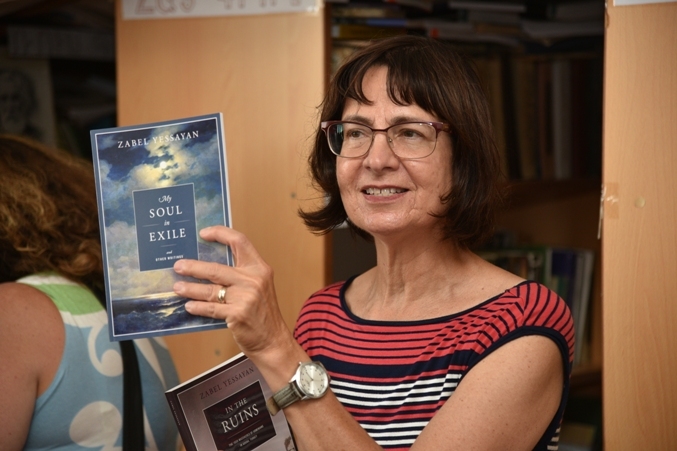On September 1, during the ceremonies of the Zabel Yessayan School of Arajamugh (described above), we witnessed the launch of Artsakh’s Second Annual Human Rights Essay Contest. The contest is initiated and run by Artsakh’s Human Rights Ombudsman, Ruben Melikyan, with support from Judith Saryan.
The contest has two objectives: First, the contest will introduce the students of Artsakh to a leading Armenian writer and human rights activist who bridged the history of both Western and Eastern Armenia in the early 20th century. Zabel Yessayan was a pioneering author and political activist who fought for human rights and free speech in the Ottoman Empire, Soviet Armenia, and the Soviet Union. However, as Yessayan’s works are not included in literature curricula across schools in Artsakh, most of the local youth are unfamiliar with the inspiring life and writings of this groundbreaking writer.
The contest will not only help Artsakh’s new generation discover the literary and human legacy of Zabel Yessayan, but will also encourage them to explore the world of human rights and social justice through her works. Specifically, the students will write short essays (1200 words or less) based on the human rights discourse in Yessayan’s The Gardens of Silihdar, the memoir of her childhood in Constantinople (Istanbul) in the late 19th century.
Drawing from Yessayan’s wisdom and insight, high school students (grades 9-12) from all schools of Artsakh are eligible to participate to address the following universal question: “Why are human rights important?”, as well as the more specific question of “How does Zabel Yessayan’s writing on human rights relate to you today?”.
A jury of 18 prominent individuals from Artsakh, Armenia, and the Diaspora, including the celebrated author Antonia Aslan, will participate as contest judges. One of the judges, Siobhan Nash-Marshall from Manhattanville College, encouraged the contest by stating that “every people need a voice, and Zabel’s voice rang loud.”
The Tufenkian Foundation is proud to co-sponsor this important initiative along with the National Association for Armenian Studies and Research (NAASR), and we hope that the contest will foster interest in human rights and the literature of Zabel Yessayan not only among the participating students, but also the general community of Artsakh.




















































